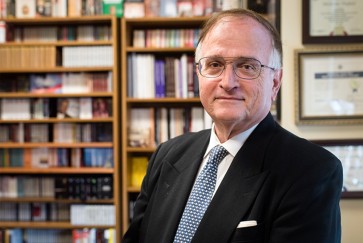Kellogg School Professor of Finance Janice Eberly was recently elected Vice President of the American Economic Association (AEA).
According to its mission statement, the AEA, established in 1885, is “dedicated to the discussion and publication of economics research,” supporting “established and prospective economists with...career-enhancing programs and services.”

AEA members hail from academia, business, and government, and association offerings include prestigious economics journals (such as the American Economic Review), a major annual conference, and other resources.
As a VP, Eberly joins an AEA executive committee including a President, two VPs, and six Committee Members, all elected by vote of the association’s global membership. “It’s an honor to be elected,” Eberly says. “I’m excited to provide ongoing service to the profession and the field in this role.”
The professor’s background fits her new position well. “I’ve done theoretical work, empirical work, and applied public policy work,” Eberly says. “The AEA membership comes from all fields in economics, with a sustained commitment to both research quality and its visibility and impact on society.”
In this regard, her past stints as Senate-confirmed Assistant Secretary and Chief Economist at the U.S. Treasury, staff member of the President’s Council on Economic Advisors, and advisory committee member of the Bureau of Economic Analysis and Congressional Budget Office, among other roles, should serve Eberly well at the AEA.
Eberly’s past roles include the Senate-confirmed assistant secretary and chief economist at the U.S. Treasury and member of the President’s Council on Economic Advisors.
As the AEA has evolved, so has its focus and strategy for carrying out its mission. “I was on the Executive Committee in 2008-10,” Eberly says. “Our emphasis then was to expand the economic journals and publication opportunities — that is, additional journals and pages within journals. Now our focus is on expanding access and opportunity in the field — to advance the profession. A primary goal, identified by many of the new officers, is to improve women’s and minority groups’ outcomes in economics.”
She notes that achieving this objective will mean enhancing professional experiences and climate, whether supporting advancement of female academics and researchers or creating initiatives to broaden diverse student populations. “We want to create more effective entry points and escalating — not diminishing — opportunities in economics,” Eberly says.
Part of the AEA’s approach to this challenge and others is being attuned to trends in the economics profession and among association members. “We have to seek regular feedback about how people are experiencing the profession, via surveys and the analytic methods we employ professionally,” Eberly says. “Such as, what is it like for junior faculty to come up through the profession? If we don’t ask deliberately, we won’t know systematically.”
Ultimately, Eberly says, the AEA is a “reflection of its members. Research economists at any institution try to answer the most relevant questions with the best methods available. So we have to be an association that prioritizes nurturing and retaining talent and advancing excellent research, just as great academic institutions like Kellogg and Northwestern do.”

